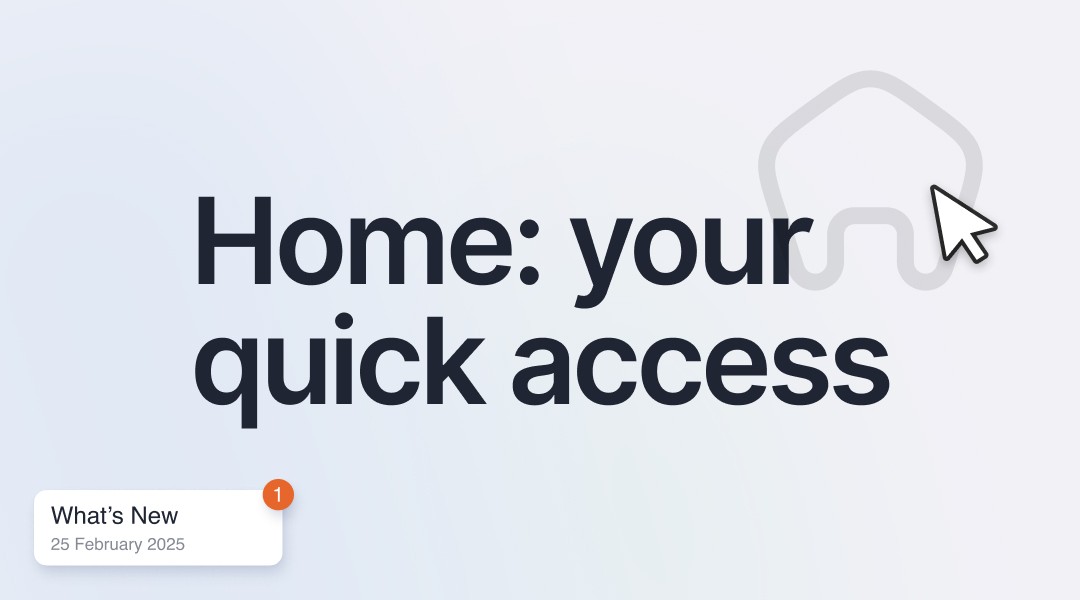Industry insights
The importance of managing information to declutter the brain
15 juillet 2024







Managing information effectively can be an important step in decluttering the brain and improving productivity. When we have too much information to process or keep track of, it can be overwhelming and make it difficult to focus on the tasks at hand. This is where tools like myReach can come in handy by providing a central location for all of your digital information and allowing you to easily access and organise it.
Effective information management involves more than just organising and storing your information, however. It also involves being selective about the information you consume and deciding what is worth your time and attention. This can involve setting boundaries on how much time you spend on certain activities, such as checking email or social media and being mindful of where you get your information from.
In addition to helping you focus on the tasks at hand, managing information effectively can also help improve your memory and recall. When you have a clear system in place for organising and accessing your information, it can be easier to retrieve it when needed. This can be especially helpful when it comes to tasks that require a lot of information, such as research or problem-solving.
Effective information management can also help reduce stress and improve overall well-being. When you are able to easily find and access the information you need, it can reduce the sense of overwhelm and anxiety that can come from feeling like you are drowning in information. It can also help you feel more in control of your life and your environment, which can have a positive impact on your mental health.
In short, managing information effectively is an important part of decluttering the brain and improving productivity. By being selective about the information you consume, organising and storing your information in a clear and accessible way and setting boundaries on how much time you spend on certain activities, you can improve your focus, memory and overall well-being.
Managing information effectively can be an important step in decluttering the brain and improving productivity. When we have too much information to process or keep track of, it can be overwhelming and make it difficult to focus on the tasks at hand. This is where tools like myReach can come in handy by providing a central location for all of your digital information and allowing you to easily access and organise it.
Effective information management involves more than just organising and storing your information, however. It also involves being selective about the information you consume and deciding what is worth your time and attention. This can involve setting boundaries on how much time you spend on certain activities, such as checking email or social media and being mindful of where you get your information from.
In addition to helping you focus on the tasks at hand, managing information effectively can also help improve your memory and recall. When you have a clear system in place for organising and accessing your information, it can be easier to retrieve it when needed. This can be especially helpful when it comes to tasks that require a lot of information, such as research or problem-solving.
Effective information management can also help reduce stress and improve overall well-being. When you are able to easily find and access the information you need, it can reduce the sense of overwhelm and anxiety that can come from feeling like you are drowning in information. It can also help you feel more in control of your life and your environment, which can have a positive impact on your mental health.
In short, managing information effectively is an important part of decluttering the brain and improving productivity. By being selective about the information you consume, organising and storing your information in a clear and accessible way and setting boundaries on how much time you spend on certain activities, you can improve your focus, memory and overall well-being.
Managing information effectively can be an important step in decluttering the brain and improving productivity. When we have too much information to process or keep track of, it can be overwhelming and make it difficult to focus on the tasks at hand. This is where tools like myReach can come in handy by providing a central location for all of your digital information and allowing you to easily access and organise it.
Effective information management involves more than just organising and storing your information, however. It also involves being selective about the information you consume and deciding what is worth your time and attention. This can involve setting boundaries on how much time you spend on certain activities, such as checking email or social media and being mindful of where you get your information from.
In addition to helping you focus on the tasks at hand, managing information effectively can also help improve your memory and recall. When you have a clear system in place for organising and accessing your information, it can be easier to retrieve it when needed. This can be especially helpful when it comes to tasks that require a lot of information, such as research or problem-solving.
Effective information management can also help reduce stress and improve overall well-being. When you are able to easily find and access the information you need, it can reduce the sense of overwhelm and anxiety that can come from feeling like you are drowning in information. It can also help you feel more in control of your life and your environment, which can have a positive impact on your mental health.
In short, managing information effectively is an important part of decluttering the brain and improving productivity. By being selective about the information you consume, organising and storing your information in a clear and accessible way and setting boundaries on how much time you spend on certain activities, you can improve your focus, memory and overall well-being.
Managing information effectively can be an important step in decluttering the brain and improving productivity. When we have too much information to process or keep track of, it can be overwhelming and make it difficult to focus on the tasks at hand. This is where tools like myReach can come in handy by providing a central location for all of your digital information and allowing you to easily access and organise it.
Effective information management involves more than just organising and storing your information, however. It also involves being selective about the information you consume and deciding what is worth your time and attention. This can involve setting boundaries on how much time you spend on certain activities, such as checking email or social media and being mindful of where you get your information from.
In addition to helping you focus on the tasks at hand, managing information effectively can also help improve your memory and recall. When you have a clear system in place for organising and accessing your information, it can be easier to retrieve it when needed. This can be especially helpful when it comes to tasks that require a lot of information, such as research or problem-solving.
Effective information management can also help reduce stress and improve overall well-being. When you are able to easily find and access the information you need, it can reduce the sense of overwhelm and anxiety that can come from feeling like you are drowning in information. It can also help you feel more in control of your life and your environment, which can have a positive impact on your mental health.
In short, managing information effectively is an important part of decluttering the brain and improving productivity. By being selective about the information you consume, organising and storing your information in a clear and accessible way and setting boundaries on how much time you spend on certain activities, you can improve your focus, memory and overall well-being.


